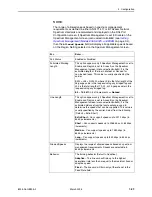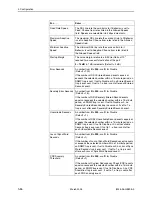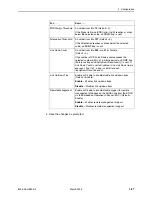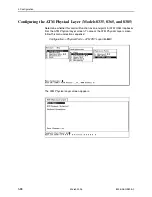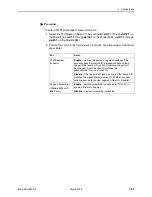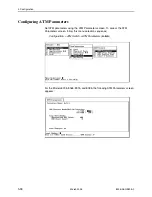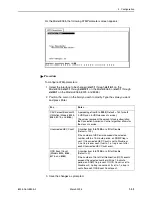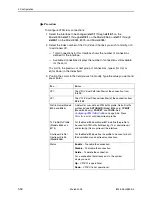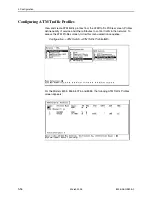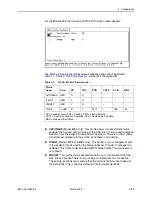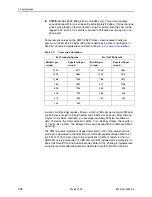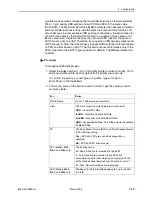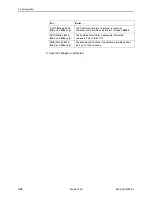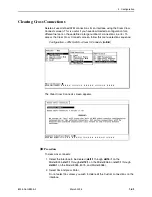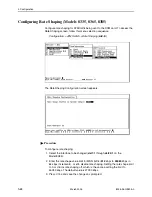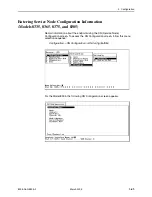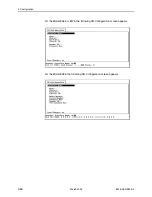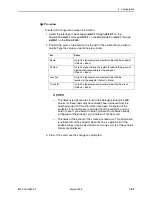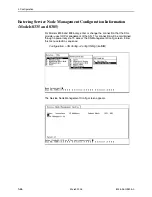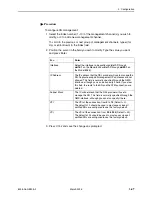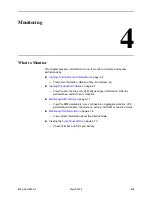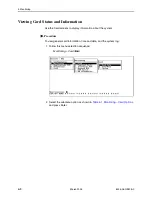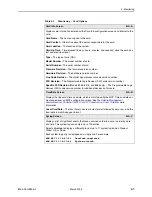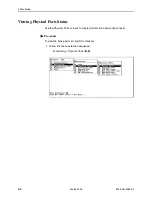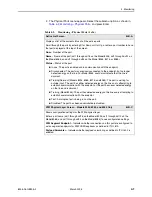
3. Configuration
3-38
March 2005
8335-A2-GB20-A0
VOICE
(Models 8335, 8365, 8375, and 8385 only): This profile allocates
enough bandwidth for one voice call (approximately 80 kbps). If more than one
voice call is placed on the connection using this profile, then the cells will be
tagged (CLP bit set). This profile is policed to 188 cells/sec (enough for one
phone call).
Some numeric values on the ATM Traffic Profiles screen represent cells per
second. An ATM cell is 53 bytes (48 bytes of data plus 5 bytes of overhead), or
424 bits. Conversion guidelines are listed in
Table 3-2, Conversion Guidelines
.
A voice circuit typically requires 80
kbps
, which is 188 cells per second. ATM cells
are 53 bytes in length (a 5-byte header and 48 bytes for payload). After allowing
4 bytes for the AAL2 overhead, you have approximately 44 bytes available for
data. Therefore, the total overhead is 53/44. For a 64 kbps stream, this results in
77.1 kbps (64 x 53/44). The 80
kbps
allows extra bandwidth for additional inband
signaling.
The ATM line cards implement Usage Parameter Control (otherwise known as
policing) as described in the ATM Forum’s Traffic Management Specification 4.1
(AF-TM-0121.000). According to this specification, traffic contracts for the two
VBR ATM service categories (rt-VBR and nrt-VBR) include traffic parameters for
Peak Cell Rate (PCR) and Sustainable Cell Rate (SCR). Policing is implemented
using the recommended dual Generic Cell Rate Algorithm (GCRA) functions.
Table 3-2.
Conversion Guidelines
For Standard Speeds
For Nx128k Speeds
Kilobits per
second . . .
Equals cells per
second . . .
Kilobits per
second . . .
Equals cells per
second . . .
2320
5471
1536
3623
1552
3660
1024
2415
1168
2755
768
1811
784
1849
512
1208
528
1245
384
906
400
943
256
604
272
642
144
340
144
340


